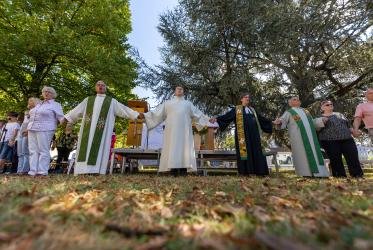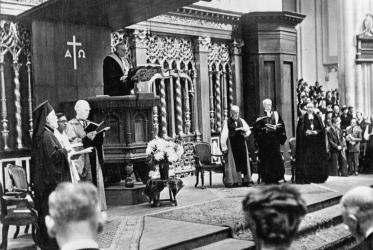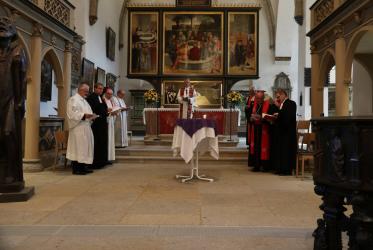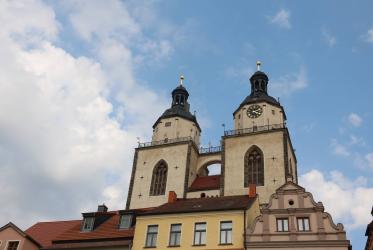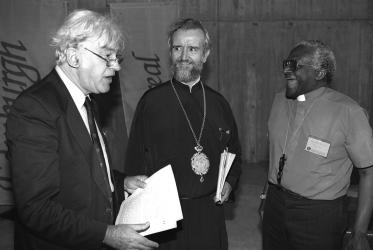Displaying 1 - 20 of 27
#WCC70 Amsterdam, 1948 (1): Covenanting in prayer
22 August 2018
#WCC70 Amsterdam, 1948 (1): Faire alliance dans la prière
22 August 2018
In Wittenberg, vision for “church of tomorrow” is formed
31 August 2017
À Wittemberg se dessine la vision de «l’Église de demain»
31 August 2017
WCC pays tribute to Günther Gassmann
23 January 2017
Religious leaders of many faiths talk peace in Assisi
21 September 2016
À Assise, les responsables religieux parlent de paix
21 September 2016
